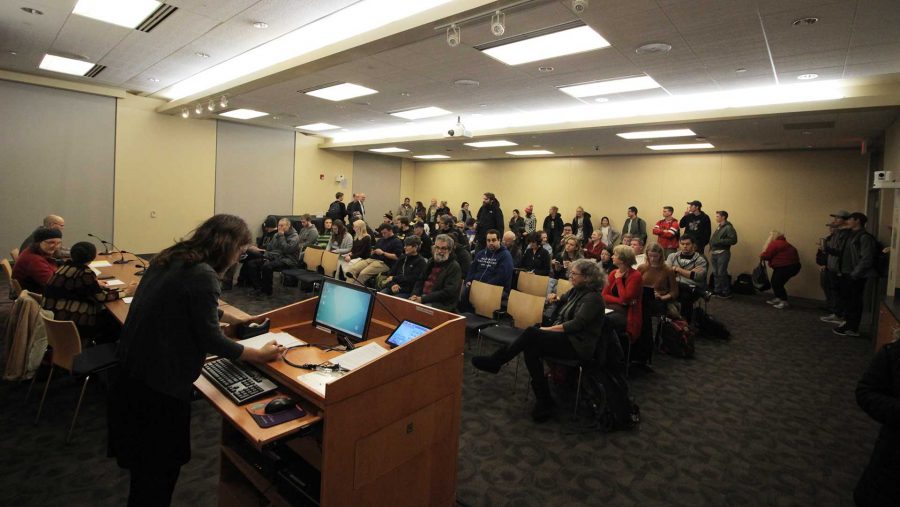Professors and specialists met at the Iowa City Public Library Monday night for a panel discussion on different perspectives of the Syrian refugee crisis, particularly Germany and the Europe Unions.
The speakers ranged from University of Iowa professors to the Chicago Consulate General for Germany, and they discussed issues of the plans set to accept refugees.
Nell Gabiam, an associate professor of anthropology and political science at Iowa State University, discussed global efforts to respond to refugee crises and the features of the Regional Refugee and Resilience Plan.
She talked about the impact the plan has had on how the global community looks at refugees. The plan recognizes that 80 percent of refugees live outside of camps.
Outside the global arena, data from the state of Iowa said 537 refugees settled in Iowa between Oct. 1, 2016 and May 31, 2017.
“Encampment is no longer seen as a requirement for refugees to receive assistance, and it shouldn’t be,” Gaibam said.
RELATED: Students debate attacking Syria
Gaibam said the heads of the UNHCR and the UNDP stated in the aftermath of the international adoption of the plan, various donor countries have vowed to create 1.1 million jobs for refugees and members of the private sector showed interest in providing investments that would benefit the refugee community.
“In addition to a different mental approach, I think there should be a commitment from countries in the global north to take in more refugees and make it easier for refugees to seek asylum in the global north,” Gaibam said.
Herbert Quelle, Chicago Consulate General for Germany discussed the German side of the refugee crisis. He said Germany does not have a regulated immigration policy like the United States does, and that he is optimistic that one will be formed in the near future.
A far cry from the 537 refugees who settled in Iowa in a one-year span, Quelle said approximately 1.6 million refugees have settled in Germany since 2013.
Quelle said he sees the growing sentiment of anti-immigrant party tickets in Germany relating to the lack of solidarity in the European Union.
“Realistically speaking, if you have a country the size of Germany that needs qualified labor more than anything else, there is a stress on the population that cannot be overcome so easily,” Quelle said.
RELATED: Life after fleeing Syria
UI professor Ahmed Souaiaia, an associate professor of religious studies, spoke about the social justice side of the crisis. He said Syria used to be a promising country both economically and from a human rights standpoint.
He also said that the use of the term “civil war” to describe the Syrian conflict misleads from its nature, having been manufactured from outside influences, and instead called it a global war.
“It’s not about being nice, it’s about being responsible,” Souaiaia said. “You have to question who broke Syria. This is a situation that was made.”
Souaiaia also compared and linked the Syrian crisis to the wars in Iraq and Syria, and said western countries involved in those conflicts need to look at how they were involved in starting those wars to pay back the people of those countries.



